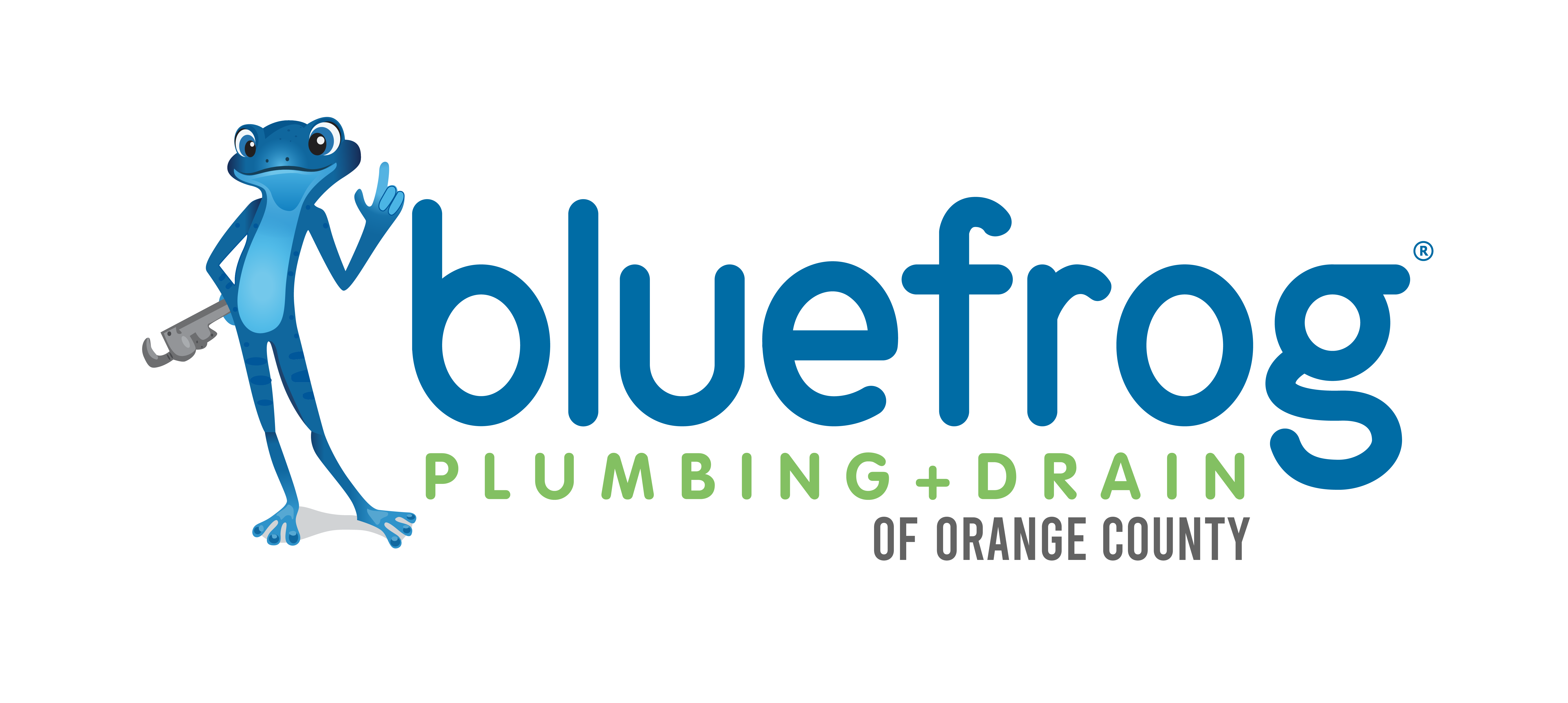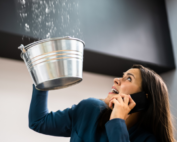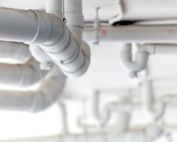We are all familiar with grease from cooking oils to bacon fat but many people are unaware of the negative impact grease can have on our plumbing systems. From clogged pipes to enormous fatbergs in municipal water treatment facilities, grease has become a million-dollar headache for homeowners, business facilities, and city sewage plants.
In this article, we will learn the surprising products that contain grease and how these grease suppliers find their way into our plumbing systems. Proper disposal techniques will be revealed and some practical suggestions on how to treat grease that has gotten into residential and commercial plumbing systems.
Where Does Grease Come From?
Grease is naturally found in foods, cooking products, bath soaps, and cleaners that we use in everyday living. Unfortunately, grease is surprisingly destructive to plumbing pipes, sewer lines, and septic tanks and has been known to cripple public sewage systems.
Grease can be found in the following food and cooking items:
-cooking sprays and oils
-salad dressings
– cake icing
-gravy
-cheeses, sauces, and dips
-butter and margarine
-sour cream
-bacon and anything fried in a skillet
-meats
-ice cream
It can also be found in these household items:
-soaps
-detergents
-cosmetics
-lotions
-cleaning products
How Grease Gets Into (or Stays) In Plumbing Pipes
The most common way grease gets into our plumbing pipes is through improper disposal habits. The majority of grease enters the plumbing system through the kitchen sink drain. Either out of ignorance or laziness people scrap their dinner dishes, or empty the contents of their frying pans directly into the sink drain without giving it a thought.
As the grease combines with cold water it takes less than a minute for it to turn from a liquid-like state into a thick paste that coats the interior lining of plumbing pipes. Over time this grease coating thickens until it begins restricting the flow of wastewater until eventually a clog forms stopping waste from exiting altogether.
Other grease enters through the tub and shower drains as oily bath products and manufactured bath bombs turn the pipe’s interiors into magnetic-like surfaces that capture loose hairs and soap scum and turn them into pipe-clogging globs.
Toilets too add grease to the plumbing system as lotion-stained tissues are thoughtlessly disposed of with a quick flush.
Washing machines, dishwashers, and garbage disposals all add their fair share of grease to the plumbing system.
Proper Disposal Is Key
In the kitchen, it is advised to keep a closed container to collect this destructive product and keep it from entering the sink drain. Large coffee containers are ideal as they come with tight-fitting lids.
Pour liquid grease into the container along with food scraps that are known to contain grease. This tub can be kept in the refrigerator until full as the cooler temperatures will turn the grease into an easier-to-dispose solid state.
Wipe all pans and dishes free of grease using paper towels and install a drain catcher to keep even tiny food particles out of the kitchen drain.
In the bathroom, it is mandatory that nothing except human waste and toilet tissue be flushed. Tubs, sinks, and showers can benefit from purchasing fat-free soaps and installation of hair catchers to keep as many clog-forming materials at bay.
Grease Removal Techniques
Ideally keeping grease from entering the plumbing pipes is ideal but there will be occasions when grease does find its way into plumbing pipes. Here are some suggestions to help deal with plumbing that has already been affected by grease.
Residential
Here are some common ways to rid your home of grease so it doesn’t affect your plumbing pipes.
U-Trap
Most of the grease clogs can be found in the U-shaped pipe found under most plumbing fixtures. Its purpose is to create a watertight seal at the curve of the pipe to prevent sewer gasses from reentering your home. A removal of the trap and a thorough cleaning can help eliminate clogs.
Homemade Cleaners
For overall cleaning of the interior of the pipe can be done in several ways. The mildest method is to combine equal parts of baking soda and vinegar and pour it down your drains. Cover the opening to the drains with a rag to keep air out. After 12 hours, remove the rag and pour in 2 gallons of very hot water mixed with ½ cup of dishwashing liquid. Be certain to use a soap that advertises grease-cutting properties.
Commercial Cleaners
Some homeowners prefer to use commercial drain cleaners. While these products are superior in removing clogs and eliminating the buildup of grease on the inside of pipes, it does harm to the pipe during the cleaning and the use of these products is highly discouraged.
Hydro Jetting
Professionally, pipe cleaning and degreasing can be done through a process known as hydrojetting. This service is highly effective when done by a trained and experienced technician but care must be taken when degreasing plumbing pipes that are nearing the end of their life. This is because hydrojetting uses high-pressure water to remove built-up materials which can separate or crack brittle pipes. Regular hydrojetting can be especially good for commercial businesses such as restaurants and hotels.
Commercial
Commercial businesses are very prone to grease buildup as commercial properties naturally have a larger number of people using the plumbing systems. Grease buildup is especially prevalent in restaurants and businesses with busy kitchens and keeping grease out of the plumbing pipes and sewer systems is an ongoing struggle for business owners. A clogged pipe at a business can shut down a business overnight.
Grease Traps
Grease traps are plumbing devices found in commercial buildings to intercept grease before it works its way into a wastewater disposal system. The grease is collected while still permitting wastewater to safely find its way down the drain. As part of routine maintenance, the grease is removed and disposed of in a responsible manner.
Grease that does find its way into the sewer system has been blamed for all sorts of plumbing issues from damaged wastewater equipment to and formation of enormous fatbergs costing municipalities millions of dollars in repairs and removals each year.
Have A Drain Clog In Orange County? Contact Us Today!
As you can see grease and plumbing pies do not mix and when they do they can cause clogged pipes, broken equipment, and giant fatbergs that cost millions to remove. Knowing how to properly tend to the grease in our homes and businesses can make a huge difference in the health of our plumbing and in the comfort of our homes. Take the time to learn more about the hazards of grease and do your part to cut back on the amount of grease that finds its way into our plumbing and eventually our environment.
If you are having issues with grease in your plumbing pipes and would like to discuss cleaning and inspecting your plumbing pipes, give us a call. We understand the threat grease has on our plumbing systems and can educate you further to counteract this fixable problem.

Slab Leaks: A True Plumbing Emergency
Home building following World War II was aggressive, so many houses were built on cement foundations to reduce the time it took to build them and to keep costs at a minimum. They were
How To Extend The Life Of Plumbing Pipes
A plumbing system consists of a complicated series of pipes, fixtures, and appliances that provide the infrastructure to run a well-functioning home. In this article, we will focus solely on plumbing pipes and ways
3 Silent Signs You Have A Plumbing Problem
Some plumbing issues announce themselves with a fury such as a drain backing up with sewage or a burst pipe, while others remain silent and destructive. In this article, we will reveal 3 signs



